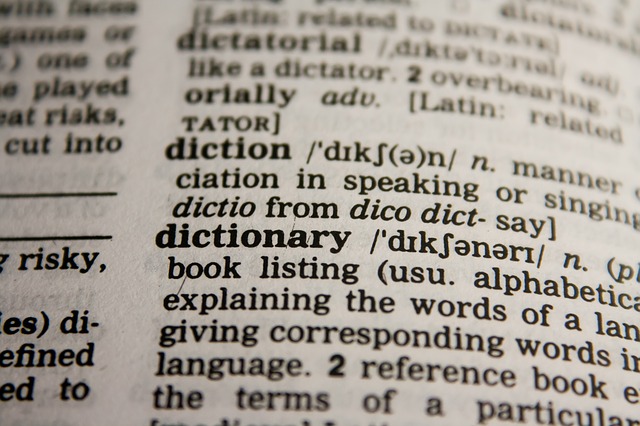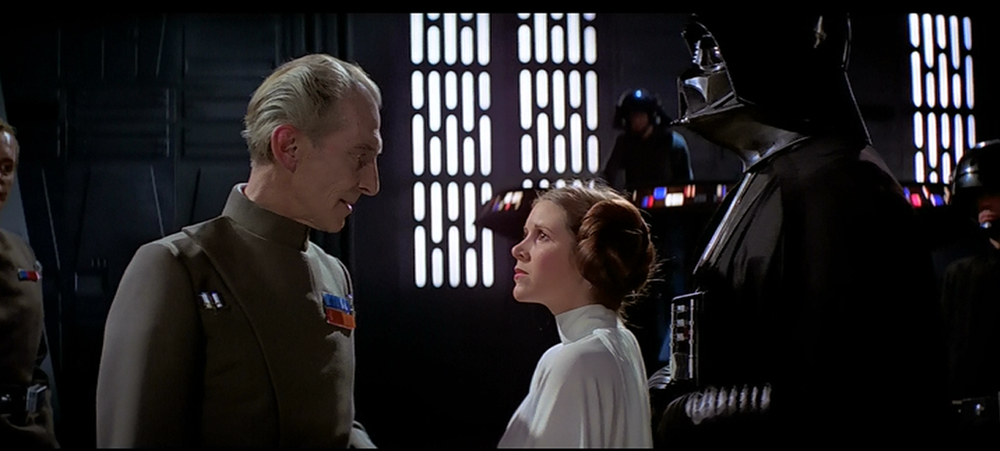In my discussions in various online forums, I frequently encounter people who worship the dictionary. These individuals will whip out the dictionary at every turn in an attempt to convince others of the rightness of their position. Often, the discussion is about religious words, but it could be any word really. Most recently, it was about the word “anarchism”, which this particular individual kept trying to dumb down from a sophisticated political philosophy to a trite dictionary definition.
Pulling out a dictionary might seem like an innocuous act, but frequently it isn’t. Often the motivation behind the turn to the dictionary is not a desire for greater understanding, but a desire for control. Dictionary worshipers do not want to understand how others use words; rather, they want to control how others use words.
This is a strategy that internet trolls are especially likely to employ. But bibliolatry is a trap that anyone can fall into.
Dictionary worshipers use the dictionary the same way Biblical literalists use the Bible: to divide everyone in the world into two categories. For the Biblical literalist, the world is divided into the morally pure and the morally impure–those who adhere to “the Word” and those who don’t. To the dictionary worshiper, the world is divided into the etymologically pure and the etymologically impure. These biblioaters have just substituted the dictionary for the Bible.
Both groups believe that the decline of Western civilization is caused by impurity, whether moral or etymological. The etymological purists claim that our very ability to communicate will be undermined of we’re not faithful to the Holy Dictionary … in spite of the a fact that we all get along just fine without consulting the dictionary on a daily basis (with the exception of an occasional game of Scrabble).

One sure way to spot a dictionary worshiper is the statement: “Words have meaning.” This is immediately followed by the sound of flipping pages of the dictionary. What these bibliolaters really mean when they say this is: “Words have one meaning … and it’s my meaning.”
The fact is that words don’t have have a meaning (singular); they have meanings (plural). Even the dictionary confirms this. In addition, we all know that words have meanings that don’t appear in the dictionary. And that’s because language is constantly evolving. This is why historical usage, while instructive, is not determinative of meaning. Meanings are worked out in the present. They are worked out in community. And they arise from consensus, not authority–whether that authority is a committee (a council of bishops or a committee of etymologists) or a book (like the Bible or the dictionary).
Urban Dictionary is probably a better reflection of the nature of human language than Webster’s or any other hardbound dictionary. Not only is Urban Dictionary constantly being updated, but the meanings of words are determined democratically, rather than by committee. And I use “determined” here only in the loosest sense, because the definitions given by Urban Dictionary are more approximations of common usage than authoritative declarations of meaning.
Not that I think we should all toss our dictionaries into the recycle bit. Dictionaries can be useful tools. They are a good place to start a discussion about meaning. But all too often they are used to try to end the discussion.

Etymological rigidity is especially problematic when when trying to “define” religious terms — which are by their nature fuzzy. In religious matters, rather than saying “words have meanings,” it might be more accurate to say “meanings have words” — the meanings precede our attempts to articulate them, and our words only ever approximate our meaning.
This is especially true of religious words like “God”, “gods”, “deities”, “Spirit”, “spirits”, “the holy”, “the sacred”. These words refer to experiences which are like electrons–they disappear when we look directly at them. In religious matters, we have to sidle up to our subject, and hope to catch a glance of it out of the corner of our eye, like a fleeting deer. You can bet that, as soon as you have nailed down a definition of “God” or “the Spirit” or whatever, the real thing has slipped your grasp. To paraphrase Princess Leia in Star Wars (IV): The more we try to tighten our grip on language, the more meaning slips through our fingers.
This is why I think poetry is so much more effective in expressing religious meaning than systematic theology, and why books of poetry (for me, Mary Oliver or Rilke) or even fiction (for me, Herman Melville or Jacqueline Carey) are more holy to me than any creed.
I’m reminded of something Alan Watts wrote about our images of divinity in Behold the Spirit: A Study in the Necessity of Mystical Religion:
“… an image of God in which the rigid qualities predominate, which excludes the beautiful, the fluid, the playful and the feminine, simply mirrors that fear of life and Reality which we saw as the chief obstacle to our realization to union with God. The rigid, male God embodies the ideal of the possessive will—to grasp and hold the mystery of life, to freeze the desired form of the living moment into an eternal and immobile possession. And so frozen, the thing is quite dead. The moment, the movement, the life has passed on and gone free. The feminine element is lacking in our image of God because we fear it in life as the beauty which burns our fingers when we try to hold it—the supple, flowing, changing aspect of things which so exasperates us because we desire to possess it and cannot, since it is the created reflection of the life and the mystery of God.”
I think dictionary worship is a manifestation of the “possessive will” that Watts describes, a desire to “to grasp and hold the mystery of life, to freeze the desired form of the living moment into an eternal and immobile possession.” But, as Paul of Tarsus said, “the letter killeth.” Language is a living thing–especially religious language. It is “supple and flowing,” and that can be exasperating, especially to those who carry a deep unconscious fear of life, who want to hammer it down and hold it in place.
I know that fear. I have to resist it all the time. But I have learned that real meaning is not to be found between the covers of a book–especially not the dictionary.
